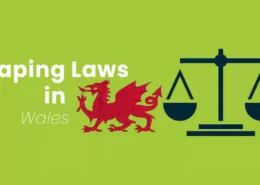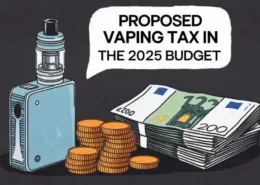Israel Considers Vape Tax Overhaul to Fight Black Market
A special commission of the Israeli Tax Authority has presented recommendations to the Minister of Finance for a complete overhaul of how e-cigarettes are taxed and regulated, concluding that the current system has inadvertently created a massive black market. The report states that an exceptionally high tax rate, combined with ease of smuggling and a lack of effective oversight, has led to widespread tax evasion and significant loss of state revenue without successfully reducing consumption.
The commission was formed after data showed that since a purchase tax was introduced in 2021, e-cigarette consumption has increased, but without a corresponding rise in tax revenue. Currently, the tax rate on e-cigarettes in Israel stands at a staggering 98.3% of the consumer price, which is 23 times higher than the OECD average and 12 times higher than the next country on the list. This is significantly higher than the 80% tax on traditional cigarettes.
To combat the resulting black market, the expert panel has proposed a new tax model: a fixed tax of 30 shekels on each vaping device (both disposable and reusable), plus an additional tax of 1 shekel per milliliter of e-liquid. The panel suggests that once this new model proves effective in reducing the black market, a gradual increase in tax rates could be considered.
Further recommendations include implementing a comprehensive licensing system for all supply chain participants (manufacturers, importers, wholesalers) and developing a computerized system for monitoring and control. The committee also called for legislation to allow for the seizure of untaxed goods and to introduce additional sanctions for violators. Beyond taxation, the panel pointed to the need for other regulations, such as limiting e-liquid volume and restricting product designs (colors, shapes) to reduce their appeal, especially to youth. The Tax Authority emphasized that these are currently recommendations under consideration by the Minister of Finance for future legislative action.
- Read more: Israel Vaping Laws – Is Vaping Illegal in Israel?
- News source: 98,3% налога. Как в Израиле возник черный рынок электронных сигарет
- Spain: NGO Demands Smoking & Vape Ban on Cíes Islands - August 12, 2025
- Spain Warns Tourists of €2,000 Fines for Vaping on Beaches - August 12, 2025
- The Ultimate Guide to Glass Bongs: Elevate Your Smoking Experience - August 12, 2025









